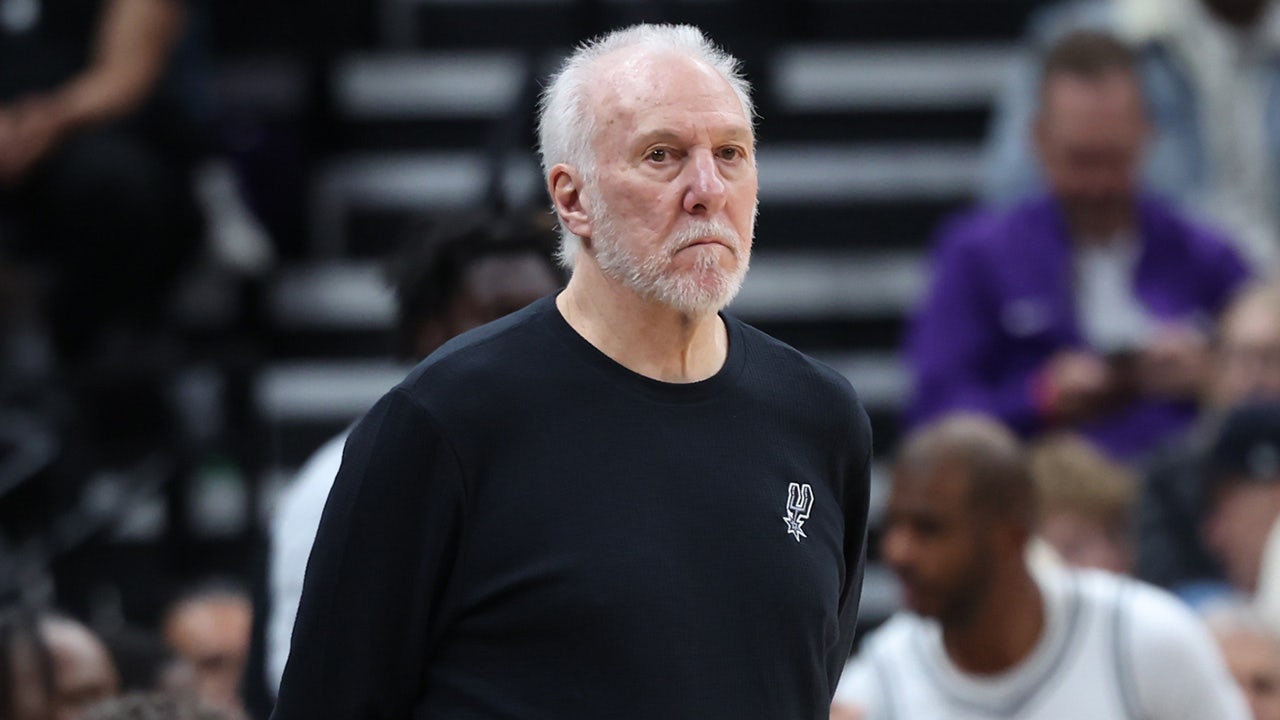Taylor Swift’s Eras Tour wrapped last December, capping off a multibillion-dollar run that paid tribute to the superstar’s 20 years in the spotlight. It’ll go down as one of the most defining moments in modern pop culture.
Now, with two album rerecordings and a secret film project on the horizon, Swift, 35, has reached what Harvard Business Review editor Kevin Evers calls a “big fork in the road.”
Evers’ new book, There’s Nothing Like This: The Strategic Genius of Taylor Swift, chronicles the creative and business decisions that have defined each phase of Swift’s career. In an exclusive interview with Us Weekly, he cites evidence from Swift’s past to predict where she goes from here — and how her business smarts will help her along the way.
Us Weekly: This book does a great job outlining the how and why behind Taylor Swift’s fame. Does your book intentionally target the non-Swiftie demographic?
Kevin Evers: I saw the book as having two audiences. I definitely wanted to appeal to Swifties. They’ve loved Taylor so much. On the whole, [the book] hopefully gives voice to things that maybe they couldn’t express themselves. But there’s also an audience of non-Swifties here. There’s a lot of people who ask, “How is this possible? How has she been able to do this?” I think that audience will get a lot out of this book.
How does Taylor’s journey embody the everyday societal issues that women face as well as the issues that a lot of female artists before her have faced?
When I sat down to write this book, I was just trying to demystify the phenomenon. But the more I wrote it, I realized that there is so much that Taylor has gone through that’s very specific to the fact that she’s a woman. And historically, artists who have predominantly female fan bases aren’t necessarily taken that seriously.
Even the Beatles when they started out, Beatlemania was not a term of endearment. Mania is in the word. It’s as if these very passionate female fans aren’t serious, right? They’re driven by emotion and not their drive to listen to things that have great artistic value, which is complete BS. And Taylor’s early rise in country music, she had a lot of doubters. Country music gatekeepers did not think that there was a real audience for teenagers, especially teenage girls — and she broke through that stereotype. I don’t think we’d be sitting here today if she didn’t have such a clear vision for what she wanted to do and was so headstrong about wanting to write her songs.
How did the online discourse from both critics and fans help you define each era of Taylor Swift’s story?
I consider Taylor our first extremely online superstar. Her rise coincided with the rise of social media, and I thought it was imperative to really go back in time and to look at what critics were saying, what people online were saying. I think that was very important, especially when she went through a lot of these controversies like with Kanye West [at the MTV Video Music Awards] in 2009. So much of our relationships with artists and opinions about music are shaped by what people are saying online. And that was definitely the case with Taylor.
You touched on Kanye. He’s had this massive fall from grace in recent years, while Taylor has had an exponential rise. Why do you think she’s chosen not to comment on Kanye’s controversies?
I think it goes back to her business savvy. She really understands how to manage a personal brand. I don’t know if she considers herself a personal brand or thinks in those terms, but her actions show that she does. And for me, a great brand is about trust and consistency. So when you look at everything that she does, it’s all about building trust with her fans and being as consistent as possible. … Taylor had a reputation for using victim language and using these controversies to grow her fame or popularity. I didn’t see that. If anything, it’s the complete opposite. She’s tried to stay away from it as much as possible, except she’s talked about it in her music. She’s a singer-songwriter. It’s well in her right to do that.
A Taylor Swift biopic is inevitable. Do you think these early years would be the best era to focus on?
I’d choose the early era, without a doubt, because it was so improbable. I know Swift looks like Faith Hill’s little sister — looks like she’s straight out of country music central casting. But she was an underdog, and so was [her former label head] Scott Borchetta. Scott had to really scramble for funding. Together, they conquered country music. And that’s a great story.
At the end of the book, you noted that Taylor is burning down the house that she built and theorized that something new is coming next. How crazy would it be if she directed her own biopic?
At this point, it’s not even a rumor that she’s directing a movie — if she hasn’t done it already. Taylor’s so secretive, she could have done it in between stops of the Eras Tour. No one knows what it’s about. It wouldn’t surprise me if it was personal in nature. That’s what Swift has built her entire career on. She knows her fans want great music, but they also want intimacy. They want connection. They want to forge deep relationships with her. And she’s always had a habit of doing things herself. She doesn’t outsource a lot of things to other people.
It goes back to that theme you kept bringing up in the book, which is her focus on narrative control. The most recent controversy was the attention she got by attending NFL games to support Travis Kelce. Do you see that as part of her strategy?
I think she’s in a relationship with Travis Kelce, and she’s there to support her partner. She can’t hide in the stands. But at the same time, we are reaching a situation that she faced back in 2016 with that second Kanye controversy. It seems like she’s beloved right now, but she’s also receiving a lot of hate and criticism at the same time. She got booed at the Super Bowl, but three months prior, she was playing at the same stadium to raucous applause. There does seem to be these dual opinions about her. On the one hand, she’s receiving a lot of flowers right now, and deservedly so. But there’s also a lot of criticism — and some of that she doesn’t quite have control over. The only thing she can do is not go to the football games, but I don’t think she’d do that.
She will find a way to make this in the music. That’s what she’s always done. And I think that speaks to her longevity. She doesn’t come out and talk or complain about it. She turns it into good music. It wouldn’t surprise me if she does the same in this case.
The Eras Tour was huge. In terms of scale, do you think that marked the peak of her live performances?
I tried to put myself in Taylor’s shoes when she decided to play three and a half hours in a setlist of over 40 songs. This is something she’s always done. She’s very extra when it comes to her fans. … The Eras Tour is going to be hard to surpass, because in many ways, it was a culmination of the last 20 years of her career. It’s hard to imagine that she’ll be able to surpass that scale, but many people said that back in 2014 after she released 1989. It wouldn’t surprise me if she finds a way to do it. She doesn’t seem to be content with the status quo.
You compared Taylor’s career to fire and wind: Every time she’s faced resistance, she’s grown stronger. Now that we’re settling into the streaming era, what major industry change do you see happening next, and how will Taylor react?
A few years ago, her popularity skyrocketed because she really leaned into streaming. She released so much music. This is similar to what Star Wars and Marvel did. They put out a ton of content, but now those brands with great IP are struggling a bit. It’s really hard to keep putting out new music and expect fans to love each album the way that they loved the previous albums. This will be a big change for Taylor. Can she continue to put out so much new music every year, or is she going to have to go back to releasing a new album every two years or so? That’s the big fork in the road for her right now.
Will she embrace AI? Or will she stay away from that?
Traditionally, she has been all about authenticity. She didn’t really use AutoTune early on, or if she did, you still heard the imperfections in her voice. She doesn’t mess with her voice too much. For her, it’s all about the connection, the intimacy, the way she sings. It sounds very conversational, so it would surprise me if she used AI in any way to augment her music or her voice.
There’s Nothing Like This: The Strategic Genius of Taylor Swift is out now.
Read the full article here















